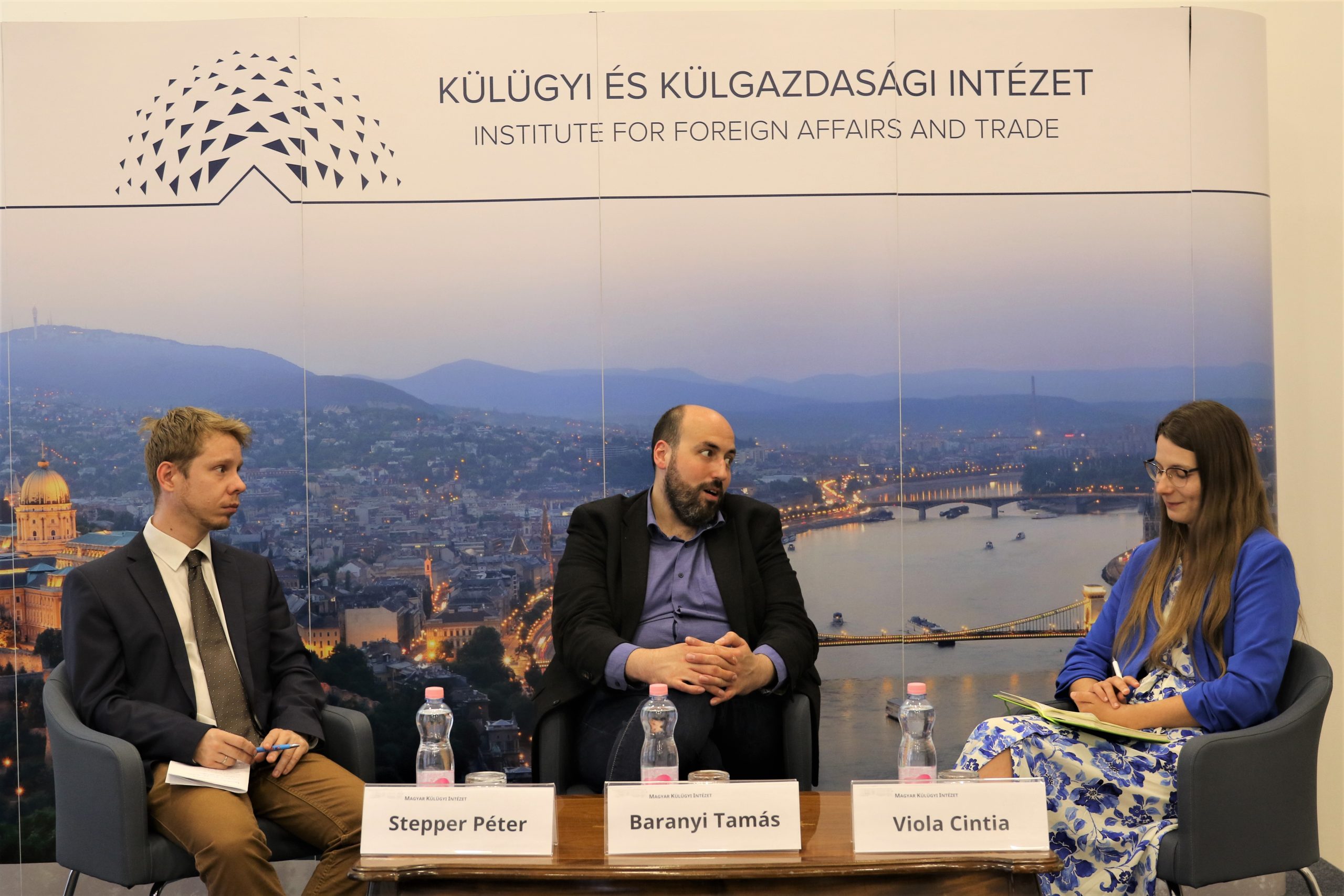On June 2, 2023, the round table discussion entitled “Lessons from the Spanish provincial elections – National and European perspectives” was held, moderated by Cintia Viola (HIIA), and the experts were Tamás Baranyi (HIIA) and Péter Stepper (HIIA). The event was focused on the possible consequences of the results of the Spanish provincial elections, Spain’s place in the European Union, the general elections scheduled for July, and the upcoming Spanish rotating presidency due to the second half of 2023.
On the provincial elections held on the May 28th in Spain, the ruling Spanish Socialist Workers’ Party won only three of the twelve districts. In connection with the ruling party Tamás Baranyi stated, that they came to power in 2019 with a slim majority, and that their popularity has plummeted because of the pandemic and various corruption allegations. Shortly after the elections, Prime Minister Pedro Sanchez stated that they would bring the date of the general elections forward from December.
In terms of the reasons for the decision, Péter Stepper expressed that the Spanish right wing goes under a significant strengthening, and that the previously mentioned parties could have hoped for a far greater voting base by December than they do today. According to another opinion, the prime minister can capitalize the fact that fewer people will vote in July. But according to Tamás Baranyi, this would have a negative impact on the number of the left-wing socialist voters. However, from another perspective, the Prime Minister’s choice is not baseless, because with this move it will be much harder, to conduct the power games inside the People’s Party due to time constraints.
Following that, the probable consequences of the July 23 general elections were addressed in greater depth, including the prospect of a PP-Vox coalition. Tamás Baranyi highlighted that, while Vox is a radical right-wing party, they are not as isolated as the AfD in Germany, which shares similar ideas as the Spanish party. As a result, forming a coalition with the People’s Party is not out of the question. Péter Stepper shared a similar viewpoint, noting that representatives from the two parties have already collaborated at the provincial level.
In the remaining part of the discussion the experts focused on the polarization of the Spanish political system, including the decline in voter support for smaller parties that think outside the box, such as Podemos and Ciudadanos, as well as alternatives to the People’s Party-Vox coalition, such as the formation of a minority government or even a grand coalition.
Regarding the rotating presidency, Tamás Baranyi declared, that serves as a role model in the European Union and that the socialist government was able to identify with the principle of the European Union the most. Following a discussion on the subject, the experts concluded that the fact that the election will take place under the rotating presidency – and most likely a change of government – will have little impact on the EU, because this role is primarily symbolic.
Finally, the experts shared their thoughts on the ‘Valencia Trio’ partnership, which is a recently developed platform that brings together Spain, Poland, and Romania. When the moderator asked if this cooperation could replace Visegrad Cooperation for Poland, Péter Stepper explained that while it is important for Warsaw to have a large, more influential Western European ally, it is still too early to proclaim that this type of cooperation can develop further to the level of the V4 – which is a formation that has been operating for more than 30 years.
Photos by Hungarian Institute of International Affairs (HIIA)

